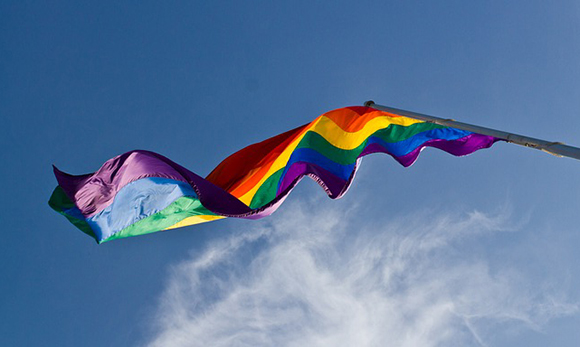
Universities can do more to support LGBTQ+ postgrads, say Ross English and Kieran Fenby-Hulse
The PhD is a time of change. As postgraduate students develop into independent researchers, they are also introduced to the norms and expectations of the workplace and wider academic community.
This is a challenging process for everyone who enters into it. But for researchers who see themselves as outside of the dominant culture the question of how to fit in to those expectations can present particular difficulties. PhD students can often feel isolated, for example, and this isolation can be exacerbated for LGBTQ+ doctoral researchers.
In a new study of the experiences of LGBTQ+ PhD candidates in the UK, we consider some of these issues. We set up an online questionnaire to investigate the attitudes and experiences of LGBTQ+ doctoral students at UK universities.
The response was pleasing, amounting to 224 people from 47 institutions. About three quarters of respondents considered their primary supervisor to be LGBTQ+-friendly. A similar proportion felt that their department offered an inclusive environment. Most of the remainder were not sure.
Even so, against this generally positive picture, many negative experiences emerged. Looking beyond the immediate supervisory team, more than a third of respondents reported feeling uncomfortable, or feeling compelled to conceal aspects of their sexuality or gender identity. Feelings of exclusion were common.
The environment and mood music of academic life, from tea-room conversations to long-term career plans, is riddled with assumptions—around relationships, domestic arrangements and social lives, for example—that can be invisible to many. Researchers who do not meet these assumptions face continual choices over whether to speak up to challenge hetro-normative or cis-normative assumptions or to let them pass.
Navigating these choices takes a toll—“it is exhausting to correct people, and I am worried for my academic relationships if I do”, wrote one respondent.
Some identified a clear dividing line between their professional life and personal identity. For others, the problem was that the ability to maintain such a division had been taken from them, as aspects of their sexual or gender identity clashed with the professional environment.
One respondent highlighted the risk of “having their research over-determined by their sexual identity”—the assumption that a queer academic’s work would inevitably amount to a “commentary on queer issues”
There were some reported instances of overt or casual discrimination. Laddish, macho cultures persist in some groups and departments, while “homophobic rants” by senior researchers are not unknown. As a junior member of the academy, calling out the behaviour of a colleague—particularly a senior colleague—is not easy.
The commonest issue was one that may be invisible to those who are part of the dominant culture. This is the tension between the personal and the professional in relation to the international nature of academic careers. Researchers participate in international conferences and collaborations, career paths circle the world, and many institutions have global campuses.
Internationalism is so part and parcel of life in higher education that it is easy to overlook the fact there are still many parts of the world where LGBTQ+ discrimination is legally enshrined or culturally rife. In eight countries, same-sex sexual relations are still punishable by death.
Respondents reported of being limited in their career choices, and of facing discrimination, or having to conceal their sexuality, while travelling for work.
This problem is not unique to PhD candidates. But it is particularly acute for a person making their first steps in a career and faced with the question of whether to push back against norms and expectations or subvert their identity to fit in with the dominant environment. A PhD is difficult enough. Students should not have to face these choices alone at a crucial and precarious point in their careers.
Instead, institutions need to engage with these issues and support their LGBTQ+ postgraduates. There’s a need for better visibility, better representation, and better mentoring. All involved in doctoral education need to understand their legal obligations, the diverse experiences and contributions of LGBTQ+ researchers, and the ways, both deliberate and unconscious, in which they can be excluded from academic life.
We need to open up conversations about where workplace norms or professional expectations present a challenge to particular groups of researchers, and to develop pathways for LGBTQ+ PhD students to become successful, international researchers.
Ross English is doctoral college manager at the University of Brighton, Kieran Fenby-Hulse is Impact Manager at Teesside University
This article also appeared in Research Fortnight